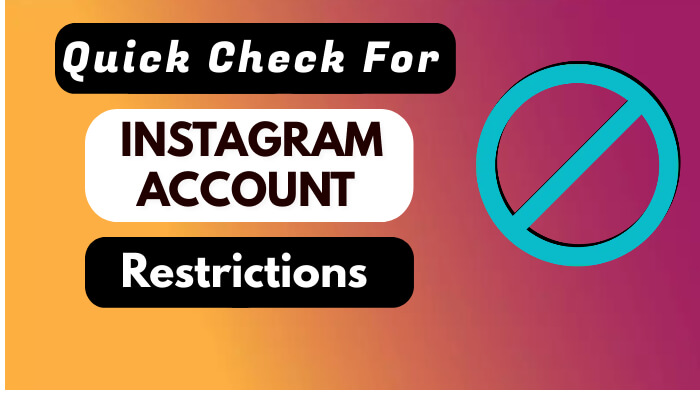
Google is open in regards to the proven fact that it doesn’t index the entire pages it could actually to find. The Use Of the Google Search Console, you can see the pages in your website that are no longer indexed.
Google Seek Console additionally provides you with helpful knowledge concerning the particular issue that avoided a web page from being indexed.
These problems include server errors, 404s, and tricks that the web page could have skinny or replica content.
However we by no means get to see any information showing which problems are the most typical around the whole web.
So… i determined to assemble data and collect the records myself!
on this article, we’ll discover essentially the most standard indexing issues which are combating your pages from appearing up in Google Seek.
Indexing 101
Indexing is like construction a library aside from rather than books, Google offers with websites.
In The Event You want your pages to turn up in seek, they have to be properly listed. In layman’s phrases, Google has to find them and keep them.
Then, Google can analyze their content to make a decision for which queries they may be related.
Getting indexed is a prerequisite for purchasing natural traffic from Google. And as more pages of your web page get indexed, you've more chances of appearing in the seek results.
That’s why it’s in reality essential for you to understand if Google can index your content material.
Here’s What I Did To Identify Indexing Problems
My day-to-day tasks come with optimizing web pages from a technical SEARCH ENGINE OPTIMISATION standpoint to cause them to more visible in Google and as a outcome, i've get admission to to several dozens of web sites in Google Search Console.
i decided to put this to use so as to with a bit of luck make popular indexing problems… smartly, much less well-liked.
For transparency, I broke down the technique that led me to a couple interesting conclusions.
Method
I Started via creating a pattern of pages, combining information from resources:
I used the knowledge from our shoppers that have been available to me. I asked other SEARCH ENGINE OPTIMIZATION professionals to share anonymized knowledge with me, through publishing a Twitter poll and attaining out to some SEOs instantly.SEOs, i want 3-10 mins of some time.
can you assist me with my research on indexing and proportion a few non-sensitive GSC records with me?
While I Locate a few attention-grabbing insights, I'm Going To publish a piece of writing on that.
thanks in advance! Please R/T
🙏🙏 https://t.co/vAwMulQtsx
— Tomek Rudzki (@TomekRudzki) November NINE, 2020
Both proved fruitful assets of information.
Except Non-Indexable Pages
It’s in your passion to leave a few pages out of indexing. Those include vintage URLs, articles that are now not related, filter out parameters in ecommerce, and extra.
Webmasters could make sure Google ignores them in a bunch of the way, including the robots.txt record and the noindex tag.
Taking such pages into consideration could negatively impact the standard of my findings, so I removed pages that met any of the criteria underneath from the sample:
Blocked by robots.txt. Marked as noindex. Redirected. Returning an HTTP 404 status code.Excluding Non-Useful Pages
To additional fortify the standard of my sample, I considered only those pages that are incorporated in sitemaps.
according to my revel in, sitemaps are the clearest illustration of valuable URLs from a given website online.
after all, there are many websites that have junk of their sitemaps. Some even come with the similar URLs of their sitemaps and robots.txt recordsdata.
But I took care of that in the previous step.
Categorizing Data
I Discovered that standard indexing problems range depending on the size of a web site.
Here’s how I break up up the knowledge:
Small web sites (as much as 10k pages). Medium websites (from 10k to 100k pages). Massive internet sites (up to a million pages). Massive websites (over 1 million pages).Because Of the differences within the dimension of the websites in my sample, I had to search out some way to normalize the data.
One very large website suffering from a particular issue may just outweigh the problems other, smaller web sites could have.
So I checked out each site in my opinion to sort the indexing problems they try with. Replica content. Found Out – lately not indexed (Crawl finances/quality issue). Soft 404. Move Slowly factor.
Let’s break these down.
High Quality
Quality problems include your pages being thin in content material, misleading, or overly biased.
in case your web page doesn’t provide unique, useful content that Google wants to turn to users, you'll have a hard time getting it indexed (and shouldn’t be stunned).
Duplicate Content Material
Google might recognize some of your pages as reproduction content, even supposing you didn’t mean for that to happen.
a standard issue is canonical tags pointing to other pages. the result is the original web page no longer getting indexed.
When You do have replica content material, use the canonical tag attribute or a 301 redirect.
this will assist you to be sure that that the same pages to your website online aren’t competing towards one another for views, clicks, and links.
Move Slowly Finances
What's crawl finances? in keeping with several components, Googlebot will best move slowly a definite quantity of URLs on each website online.
this means optimization is important; don’t let it waste its time on pages you don’t care approximately.
Comfortable 404s
404 mistakes mean you submitted a deleted or non-existent page for indexing. Cushy 404s display “no longer discovered” data, however don’t return the HTTP 404 status code to the server.
Redirecting got rid of pages to others that are beside the point is a standard mistake.
Multiple redirects might also appear as comfortable 404 mistakes. Attempt to shorten your redirect chains as a lot as conceivable.
Move Slowly Factor
There are many move slowly issues, however an important one is a problem with robots.txt. If Googlebot finds a robots.txt to your website but can’t get entry to it, it is going to not move slowly the positioning at all.
In Spite Of Everything, allow’s take a look at the effects for different web site sizes.
Small Websites
Sample dimension: FORTY FOUR sites
Crawled, recently now not indexed (high quality or move slowly budget factor). Replica content. Move Slowly funds issue. Soft 404. Crawl factor.Medium Web Sites
Pattern dimension: EIGHT web sites
Reproduction content material. Found Out, lately not listed (crawl budget/high quality issue). Crawled, lately now not indexed (high quality factor). soft 404 (high quality factor). Move Slowly factor.Big Websites
Sample dimension: NINE web sites
Crawled, recently not indexed (high quality issue). Found Out, these days now not listed (crawl finances/high quality factor). Reproduction content material. Cushy 404. Crawl issue.Large web pages
Sample measurement: NINE websites
Crawled, lately now not indexed (high quality issue). Discovered, lately now not indexed (crawl finances/high quality factor). Reproduction content (reproduction, submitted URL no longer decided on as canonical). Cushy 404. Move Slowly issue.Key Takeaways on Common Indexing Problems
It’s attention-grabbing that, in step with these findings, two sizes of internet sites are affected by the similar issues. This shows how tricky it is to keep up high quality within the case of huge web pages.
Better than 100k, however smaller than 1 million. Higher than 1 million.The takeaways, alternatively, are that:
Even reasonably small websites (10k+) won't be totally listed on account of an inadequate move slowly price range. the larger the web site is, the extra urgent the move slowly budget/high quality issues turn out to be. The duplicate content factor is severe but adjustments its nature depending on the website.P.S. A Note Approximately URLs Unknown for Google
All Through my research, I Spotted that there’s yet one more common issue that forestalls pages from getting listed.
It may not have earned its position in the scores above but continues to be important, and i used to be shocked to look it’s nonetheless so popular.
I’m speaking approximately orphan pages.
Some pages on your web page could have no interior links leading to them.
If there may be no trail for the Googlebot to search out a page thru your website online, it won't find it at all.
What’s the answer? Upload links from similar pages.
you can additionally repair this manually by way of adding the orphan web page on your sitemap.







